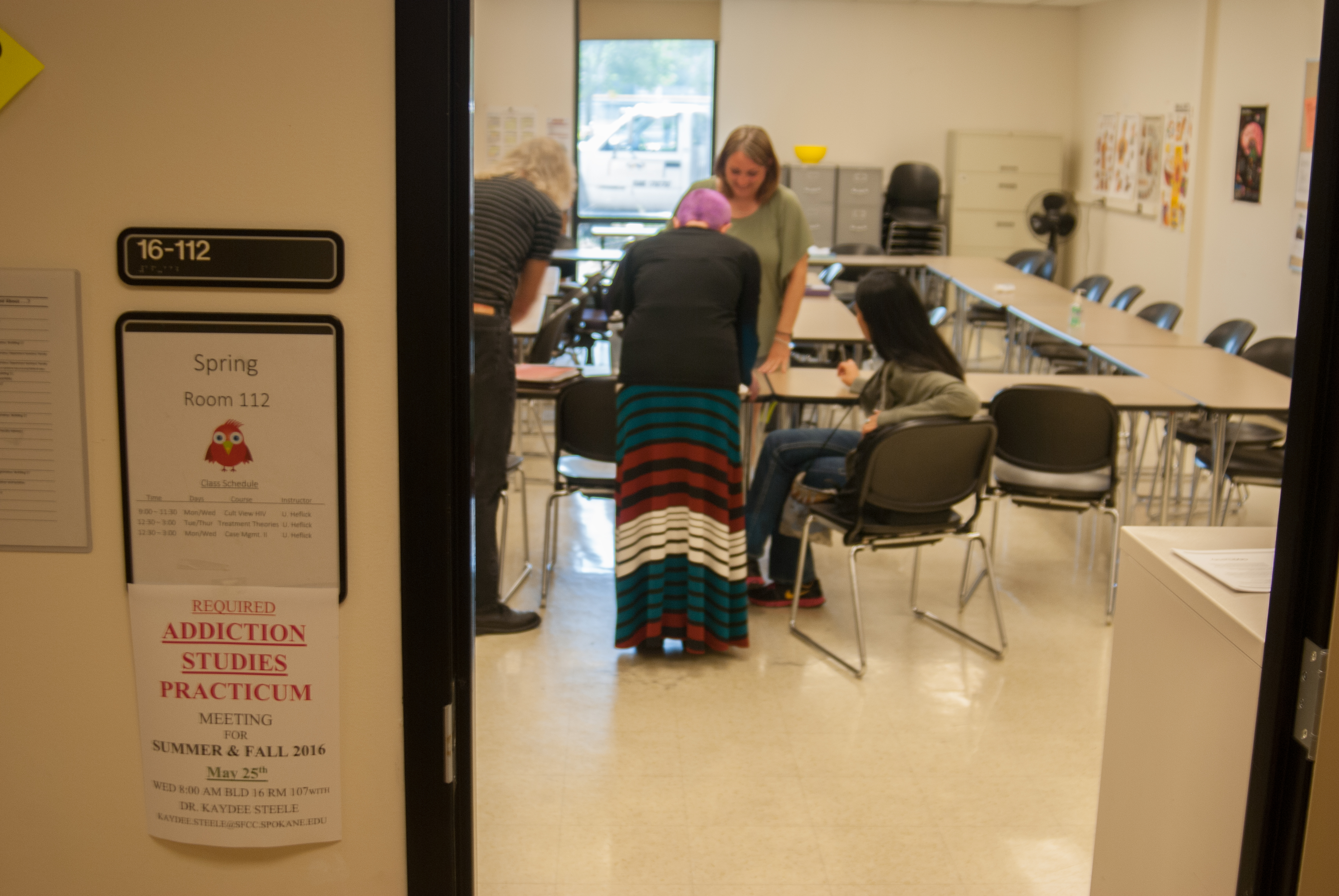[wzslider]
By: Brook Kellogg
Angela Gollehon is a current student in the Addiction Studies program here at Spokane Falls Community College (SFCC) and the president of the Addiction Studies club.
Gollehon grew up in a clean-living Air Force family. She struggled with epilepsy through the majority of her childhood. In 1997, she decided to sign up for classes at SFCC, but found herself unable to follow through.
“When I got out of high school I just didn’t know where I was going. I checked into SFCC and I came for one day, sat through classes and never came back,” said Gollehon. “Then I just started hanging out with the wrong crowd”
She suddenly found herself addicted to methamphetamine. H er addiction lasted four months. Then, in the middle of that addiction, a game-changer occurred.
“I guess my addiction was about four months long, and then I found out I was pregnant with my son. So I quit everything”, said Gollehon.
After finding out she was pregnant, she stayed low-key to avoid detection by the authorities.
“After I found out I was pregnant, I kind of went incognito. I had a warrant out for my arrest, but I didn’t want to have my child in prison, so I went on the run like a dummy,” said Gollehon. “I had my son, and two weeks after he was born I was arrested, and went to prison.”
Her stint in prison lasted three years.
“I didn’t consider myself an addict, because I didn’t know what an addict was, until after I was about a year-and- a-half into prison,” said Gollehon. “Just going through some of the programs and classes they had, I realized I was an addict.
“So I admitted that to myself and started working on it, and coming to terms with how to cope with it, how to deal with it, and of course how to beat it.”
Gollehon has made many changes in her life since being released from prison 11 years ago. She anticipates graduating in winter, getting her bachelor’s degree in addiction studies and is currently working at a treatment center for adolescents. She has gotten her epilepsy under control.
“My advice I want to add on to that is that it doesn’t matter what you look what you look like, what you sound like, how drunk you are or how high you … somebody’s going to help you,” said Gollehon. “And to know that you are not alone. That’s probably the biggest one!”
For anyone interested in the addiction studies program, one thing to make clear is it’s not a rehab program.
“A lot of people I think kind of mistakenly think that the program is going to help them, but if you’re not strong in your recovery, this program is going to be that much tougher,” said Gollehon.


